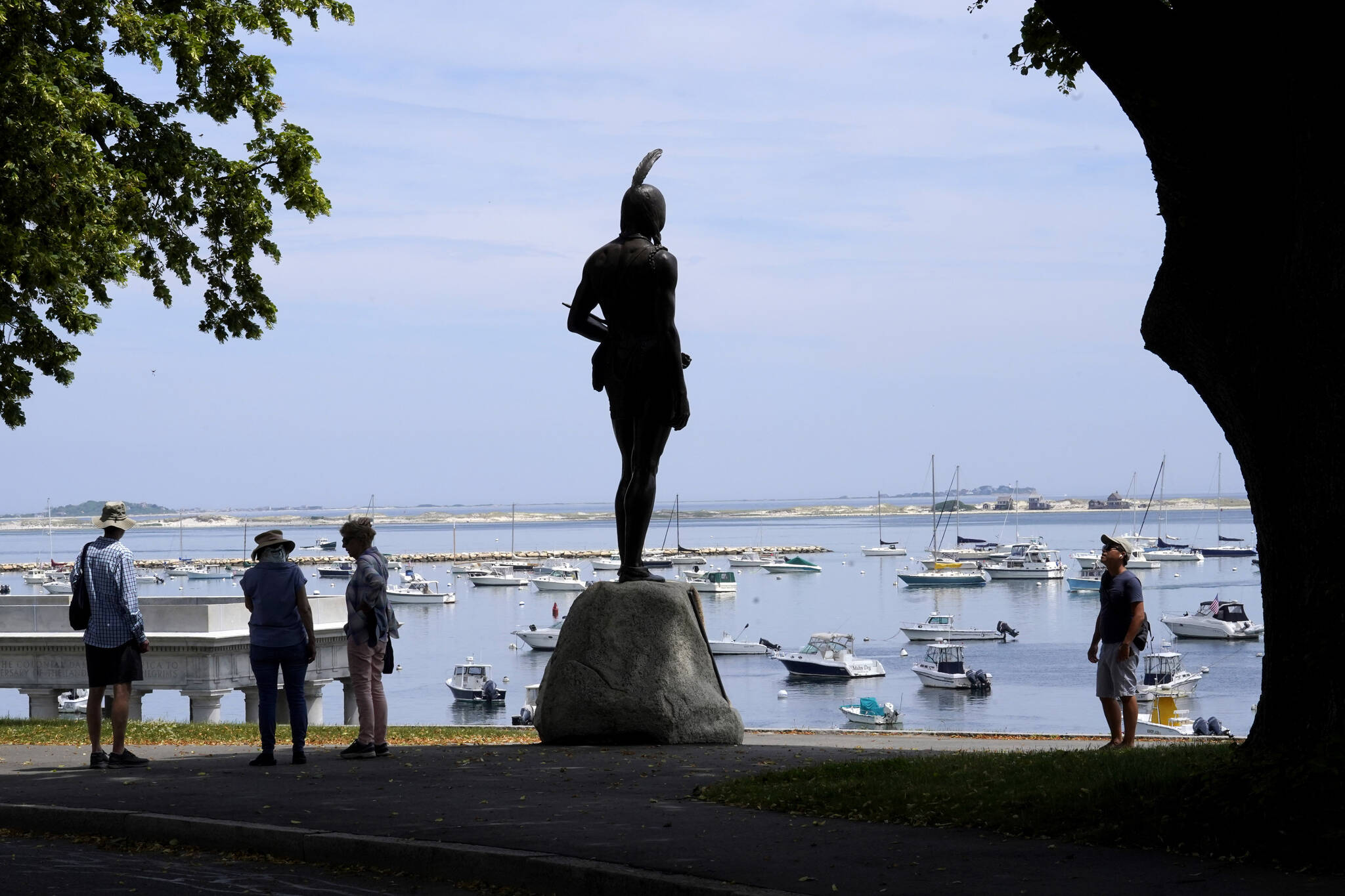This year’s Thanksgiving holiday marks the 400th anniversary of the 1621 gathering of English settlers and the Wampanoag people, traditionally viewed as the holiday’s start. But for many Indigenous groups, the Thanksgiving holiday is a painful reminder of the history of colonization.
“There’s a lot of misconceptions about Thanksgiving,” said Rosita Worl, executive director of the Sealaska Heritage Institute who also holds a Ph.D in anthropology from Harvard University. “People really don’t know the background. They did have somewhat of a feast, but there’s lots of different stories about that.”
The traditional history of the first Thanksgiving is of a celebration of unity between colonial newcomers and Indigenous people, but the historical reality of the 1621 meeting at Plymouth isn’t entirely clear and what did follow were centuries of colonization for Indigenous people.
“I do think that for the most part most Americans do get together and view it as a day and reflect on their good fortune,” Worl said. “That’s good and healthy but its beginnings were not as beautiful and peaceful. For many Native American groups it’s a day of mourning.”
The Plimoth Patuxet Museums in Plymouth, Massachusetts, says Thanksgiving traditionally marks a November 1621 meeting between English colonists and the Wampanoag People but the exact reason for the gathering and what took place there aren’t entirely known. Additionally, the gathering didn’t necessarily take place in November, according to the museum, but sometime between Sept. 21 and Nov. 9, 1621.
According to the National Achieves, Thanksgiving wasn’t made an official holiday until 1939 and not formally established as the fourth Thursday in November until 1941. Congress did pass a resolution in 1789 for Nov. 26 as a national day of thanksgiving, according to the archives, but President George Washington’s proclamation makes no mention of any meeting.
Subsequent presidents issued thanksgiving proclamations, but the dates and months varied, according to the National Archives. It wasn’t until President Abraham Lincoln’s 1863 Proclamation that Thanksgiving was regularly commemorated each year on the last Thursday of November.
But Lincoln’s proclamation makes no mention of the 1621 meeting either, and only calls for national unity during a time of division. Additionally — according to the National Park Service which manages the Lincoln Home National Historic site — Lincoln’s proclamation was originally written by his secretary of state and architect of the Alaska Purchase William H. Seward to be celebrated in August.
Since 1970, the United American Indians of New England have held a National Day of Mourning in Plymouth on Thanksgiving Day, calling the holiday, “a reminder of the genocide of millions of Native people, the theft of Native lands and the erasure of Native cultures.”
It’s only recently that Indigenous people have been able to add their voices to the historical narrative, said Paulette Moreno, former grand president of the Alaska Native Sisterhood. Historical narratives are often set by people in power, Moreno said, and in Alaska and the U.S. Indigenous voices have been intentionally left out or suppressed.
“Our voice is not necessarily even heard; we weren’t even able to vote in our own homeland,” Moreno said. “Today if our voice is more aggressive in reframing or redirecting these stories in history, it is because we are able to do so.”
Moreno said there would be resistance to reframing historical narratives, but the conversation was long overdue.
“They’ve had their voices heard, that’s why we have these holidays,” Moreno said. “It’s just from a certain perspective.”
[Churches respond to revelations about residential schools]
Worl said she was encouraged by the recent movement to reexamine the history of Thanksgiving and hoped the holiday could be recreated to look not just at the past but at the future. Worl acknowledged looking into history can be painful, and said she’s encountered people hesitant to address parts of Alaska Native history.
“I even tell the Native students; we can’t romanticize our culture,” Worl said. “Tlingits had slaves. We even went to court to try and protect us holding slaves. At some point in time, you have to make values about what was ethical, it begins with facing the truth and then having those discussions.”
Other countries and territories have established truth and reconciliation commissions to address difficult history, Worl said, but there hasn’t been the political will in Alaska. The Truth and Reconciliation Commission of Canada established in 2007 to address the legacy of boarding schools in that country could serve as a model, Worl said.
Maine set up a state truth and reconciliation commission in 2013 and in March the Australian state of Victoria launched a commission to investigate historical crimes against Aboriginal Australians. Several national truth and reconciliation commissions have been established in countries, including South Africa, the Republic of Ireland and New Zealand.
Worl said SHI’s efforts at cross-cultural promotion had born fruit. Citing the institute’s work with the Juneau School District, Worl said non-Native parents are children were engaging with Alaska Native traditions. Still, Worl said when she raised the topic of a truth and reconciliation commission with former Gov. Bill Walker, she was unable to make any progress with the idea.
“For me, the beginning for changing the narrative would be to at least accept that there are a lot of myths around Thanksgiving,” Worl said. “To at least acknowledge there were these misconceptions.”
Worl said her own families celebrate Thanksgiving, incorporating Indigenous foods and traditions, but the holiday sometimes has a somber tone.
“We are thankful,” Worl said. “But we don’t ignore that we’ve come through some very hard times.”
Contact reporter Peter Segall at psegall@juneauempire.com. Follow him on Twitter at @SegallJnuEmpire.

